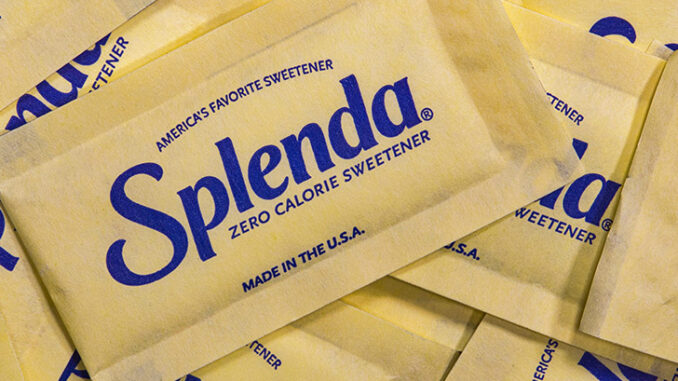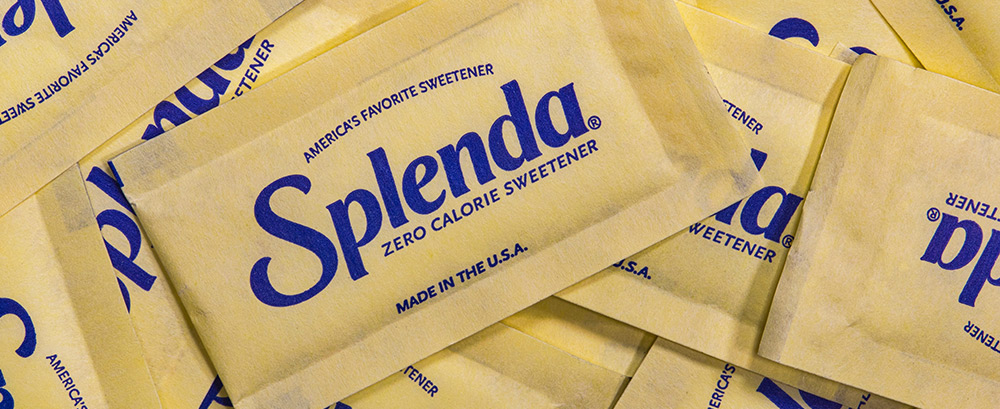
A recent study has found that the artificial sweetener Sucralose, may actually be making its consumers fat.
Sucralose popularly known as Splenda, may actually increase your appetite and cravings, according to the new study.

BYPASS THE CENSORS
Sign up to get unfiltered news delivered straight to your inbox.
You can unsubscribe any time. By subscribing you agree to our Terms of Use
The common sugar substitute, is often found in so called ‘diet’ versions of products, implying that it is helpful to people trying to lose weight.….But as this fake sugar doesn’t satiate the brain, it results in increased hunger and cravings.
Wendy Williams Leaks Tape Exposing Oprah Auctioning Underage Bieber to VIP Pedophiles
In the ‘Abstract’ section, the study said:“These findings suggest that non-caloric sweeteners could affect key mechanisms in the hypothalamus responsible for appetite regulation”.
InfoWars reports: One of the study’s authors posed a question regarding the neurological effects of the artificial flavoring, which the study aimed to answer.
“But are these substances actually helpful for regulating body weight? What happens in the body and brain when we consume then, and do the effects differ from one person to the next?” the study’s corresponding author, Kathleen Alanna Page, MD said.
The research was conducted by analyzing how Sucralose alters brain activity, hormone levels and thus hunger. Prior research into the phenomenon of diet sweeteners making people fat focused on a direct connection between the weight gain and the substance. This new study looks at the indirect link between the sweetener and hunger itself.
The study specifically looked at neurological activity after participants consumed Sucralose.
“…the researchers tested how 75 participants responded after consuming water, a drink sweetened with Sucralose or a drink sweetened with regular sugar. They collected functional magnetic resonance imaging (fMRI) brain scans, blood samples and hunger ratings before and after participants consumed the drink,” the Keck School of Medicine said. “Sucralose increased hunger and activity in the hypothalamus, especially in people with obesity. It also changed the way the hypothalamus communicated with other brain regions. Unlike sugar, sucralose did not increase blood levels of certain hormones that create a feeling of fullness.”
Interestingly, this phenomenon could even trigger changes in cravings and eating behavior.
“At each visit, researchers collected baseline brain scans and blood samples. They also asked participants to rate how hungry they were. Next, participants consumed 300 ml of water, a sugar-sweetened drink or a drink sweetened with Sucralose. Researchers then collected follow-up brain scans, blood samples and hunger ratings several times during the next two hours,” the Keck School of Medicine said.
Compounding the problem, the neurological reaction to the sweetener was experienced to a greater degree in obese individuals, those who would likely consume a ‘diet’ version in hopes of losing weight.
“Compared to drinking sugar, drinking sucralose increased brain activity in the hypothalamus and increased feelings of hunger. Compared to drinking water, sucralose increased hypothalamic activity, but did not change feelings of hunger. Those effects were strongest in people with obesity,” the Keck School of Medicine said.
Consuming Sucralose resulted in an increased connectivity between the hypothalamus and a number of other brain regions which handle motivation and sensory processing. It includes the anterior cingulate cortex, a region that is involved in decision making.
Alarmingly, the effects of Sucralose on the developing brain are not yet well understood.
“Are these substances leading to changes in the developing brains of children who are at risk for obesity? The brain is vulnerable during this time, so it could be a critical opportunity to intervene,” Page said.

